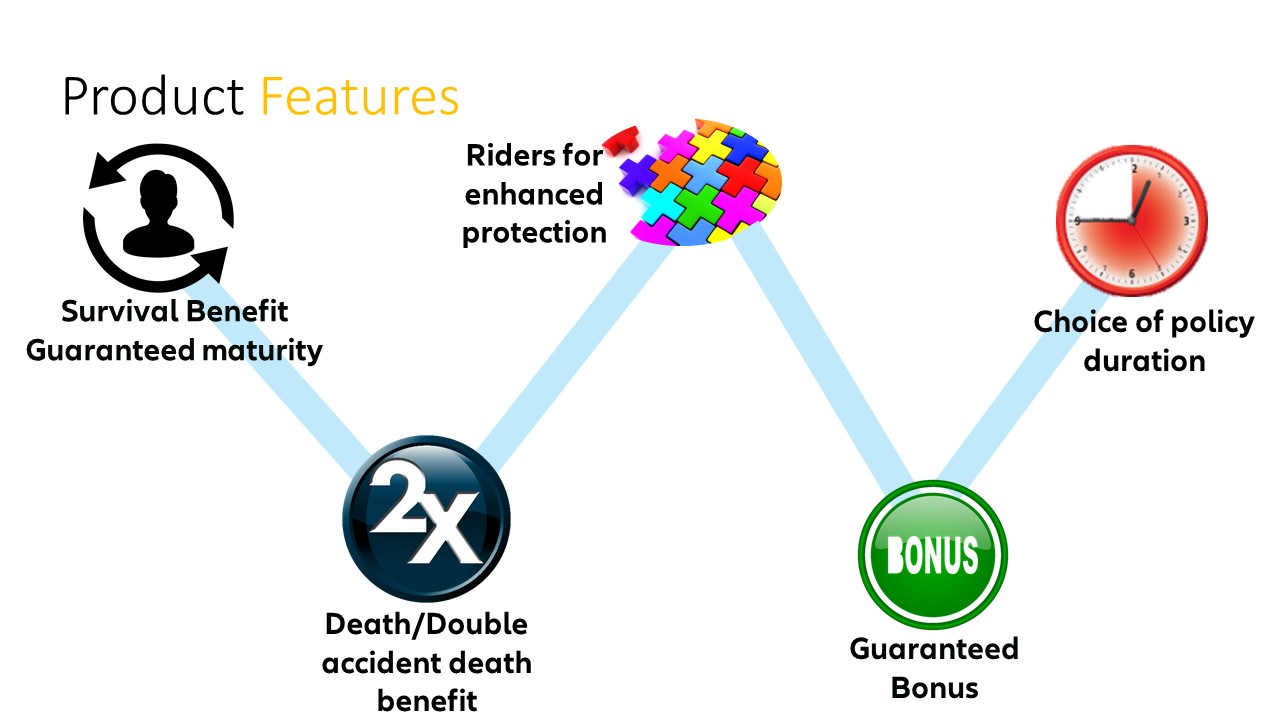

Finance
Why Sell A Life Insurance Policy?
Published: October 15, 2023
Looking to improve your finances? Find out why selling your life insurance policy may be a smart financial move. Maximize your financial potential today!
(Many of the links in this article redirect to a specific reviewed product. Your purchase of these products through affiliate links helps to generate commission for LiveWell, at no extra cost. Learn more)
Table of Contents
Introduction
Life insurance is a valuable financial tool designed to provide financial protection for your loved ones in the event of your passing. However, life circumstances can change, and the need for your life insurance policy may diminish over time. In such cases, you may wonder if there is any benefit to selling your life insurance policy.
Selling a life insurance policy, known as a life settlement, is an option that many policyholders consider when they no longer have a need for the coverage. This practice allows you to sell your policy to a third party in exchange for a lump sum payment. While it is not the right solution for everyone, it can provide several financial advantages.
In this article, we will explore the reasons why someone might choose to sell their life insurance policy and the potential benefits and risks involved. By understanding these factors, you can make an informed decision about whether selling your life insurance policy is the right choice for your individual financial needs.
It is important to note that before making any decisions regarding your life insurance policy, it is advisable to consult with a financial advisor or insurance professional who can provide personalized guidance based on your unique situation.
Financial Needs and Challenges
Throughout life, individuals and families face various financial needs and challenges. These can include paying off a mortgage, funding a child’s education, or covering medical expenses. When you initially purchased your life insurance policy, it was likely intended to provide financial protection in the event of your death, ensuring that your beneficiaries would be taken care of financially.
However, as time goes on, your financial circumstances may change. You may have paid off your mortgage, your children may have become financially independent, or your retirement savings may have grown significantly. In such cases, the need for a life insurance policy may diminish. Continuing to pay premiums for a policy that no longer meets your financial needs can be burdensome and wasteful.
Additionally, maintaining a life insurance policy can become challenging as you age. Premiums tend to increase as you get older, and the cost can become a significant financial burden, especially for retirees living on a fixed income. Selling your life insurance policy can help alleviate this financial strain and free up funds for other expenses.
Furthermore, unexpected financial challenges can arise, such as mounting debt or medical bills. In these situations, selling your life insurance policy can provide a much-needed infusion of cash to address your immediate financial needs.
By evaluating your current financial needs and challenges, you can determine if selling your life insurance policy is a viable option. It is crucial to carefully assess your financial situation and consider the long-term implications before making a decision.
Cash Value Life Insurance
Before delving into the reasons for selling a life insurance policy, it is essential to understand the concept of cash value life insurance. Cash value life insurance is a type of policy where a portion of your premium payments accumulates as a cash value component over time. This cash value grows on a tax-deferred basis and can be accessed during your lifetime through policy loans or withdrawals.
There are several types of cash value life insurance policies, including whole life insurance, universal life insurance, and variable life insurance. Each type has its own unique features and benefits, but they all offer the opportunity to build up cash value over time.
The cash value component of a life insurance policy can serve as an additional financial asset. You can use the accumulated cash value for various purposes, including supplementing retirement income, funding educational expenses, or covering unexpected financial emergencies.
One of the main advantages of cash value life insurance is its flexibility. Unlike term life insurance, which only provides coverage for a specific period, cash value life insurance offers lifelong protection while building up a cash value that can be accessed during your lifetime.
It is important to note that accessing the cash value of a life insurance policy through loans or withdrawals can have an impact on the policy’s death benefit and future premium payments. If you choose to surrender or cancel the policy, you may also incur surrender charges or taxes.
Now that we have a basic understanding of cash value life insurance, let’s explore the reasons why someone might consider selling their life insurance policy.
Reasons for Selling a Life Insurance Policy
There are several valid reasons why someone might choose to sell their life insurance policy. Let’s explore some of the most common motivations:
- Financial hardship: Life can be unpredictable, and unexpected financial challenges can arise. Selling a life insurance policy can provide a way to access a lump sum of cash that can be used to address immediate financial needs such as medical bills, debt repayment, or covering everyday expenses during a tough financial period.
- Changing financial needs: Over time, your financial circumstances may change. You may find that you no longer need the coverage provided by your life insurance policy. This could be due to paying off debts, grown children becoming financially independent, or a significant increase in retirement savings. Selling the policy frees up funds that can be directed towards more pressing financial priorities.
- High premiums: As you age, the cost of maintaining a life insurance policy can rise significantly. Premiums tend to increase with age, especially for policies with term limits. For retirees living on a fixed income, the burden of high premiums can be unsustainable. Selling the policy can alleviate financial strain and free up resources for other essential expenses.
- Changing life circumstances: Life is full of changes, and sometimes those changes can affect the need for life insurance. For example, if you divorce and no longer have dependents who rely on your financial support, or if you sell a business and no longer need the coverage for business-related purposes, selling the policy can make financial sense.
- Alternative investment opportunities: Selling a life insurance policy can provide an opportunity to explore other investment options. The lump sum of cash obtained from the sale can be invested in potentially higher-yielding assets or used to diversify your investment portfolio.
- Long-term care needs: As you age, the need for long-term care may become a reality. Selling a life insurance policy can generate a significant amount of money that can be used to cover the costs associated with long-term care, such as nursing home expenses or in-home care.
These are just a few of the reasons why individuals may choose to sell their life insurance policies. It is crucial to carefully evaluate your own financial situation and consult with a financial advisor or insurance professional to determine if selling your life insurance policy aligns with your specific needs and goals.
Financial Benefits of Selling a Life Insurance Policy
Selling a life insurance policy can offer several financial benefits, depending on your individual circumstances. Let’s explore some of the key advantages:
- Lump sum payment: By selling your life insurance policy, you can receive a lump sum payment from the buyer. This immediate influx of cash can be used to address pressing financial needs, such as paying off debts, covering medical expenses, or making a large purchase.
- Elimination of premium payments: When you sell your life insurance policy, you are no longer responsible for paying the premiums. This eliminates an ongoing expense and allows you to redirect those funds towards other financial goals or daily living expenses.
- Higher payout than surrendering: In many cases, selling a life insurance policy can yield a higher payout than surrendering or canceling the policy. When you surrender a policy, you typically receive the cash value minus any applicable surrender charges. Selling the policy to a third-party buyer can often result in a significantly larger payout.
- Increased financial flexibility: The funds received from selling your life insurance policy can provide you with increased financial flexibility. You can use the money to supplement your retirement income, invest in other financial opportunities, pay for long-term care expenses, or fulfill other financial goals.
- Tax advantages: In certain situations, the proceeds from a life insurance policy sale may be considered tax-free, up to the amount you have paid in premiums. This can provide an additional financial benefit, especially if you are in a higher tax bracket.
- Access to cash value: Depending on the type of policy you have, selling your life insurance may allow you to access more of the cash value that has accumulated in the policy. This can be particularly beneficial if you have an immediate need for a substantial amount of cash.
It is important to remember that every individual’s financial situation is unique, and the financial benefits of selling a life insurance policy will vary. Before making a decision, it is advisable to consult with a financial advisor or insurance professional who can assess your specific circumstances and help you evaluate the potential financial advantages of selling your life insurance policy.
Risks and Considerations
While selling a life insurance policy can offer financial benefits, it is important to understand and carefully consider the risks and potential drawbacks. Here are some key factors to keep in mind:
- Reduced death benefit: When you sell your life insurance policy, the death benefit that would have been paid out to your beneficiaries upon your passing will no longer be available. This is an important consideration if providing financial support for loved ones is a priority for you.
- Loss of future coverage: Selling your life insurance policy means that you will no longer have coverage in place. If your financial circumstances change again and you need life insurance in the future, you may face challenges in securing a new policy, especially if your health has deteriorated.
- Potential tax implications: While the proceeds from a life insurance policy sale are often tax-free, there can be certain tax implications depending on your specific situation. It is important to consult with a tax advisor to fully understand the potential tax consequences before selling your policy.
- Life settlement company reliability: When selling your life insurance policy, you will be dealing with a buyer or life settlement provider. It is crucial to research and choose a reputable and reliable company to ensure a transparent and fair transaction.
- Impact on public assistance eligibility: If you are currently receiving or anticipate needing government assistance programs such as Medicaid, selling your life insurance policy and receiving a large lump sum payment may affect your eligibility. It is essential to understand the potential impact on your access to public benefits.
- Alternative options: Before deciding to sell your life insurance policy, explore alternative options such as reducing the death benefit, cashing out the policy’s cash value, or taking a policy loan. These alternatives may provide a more suitable solution depending on your financial objectives.
These risks and considerations should not deter you from exploring the possibility of selling your life insurance policy but rather serve as points of discussion with a financial advisor or insurance professional. Carefully weighing the potential risks and rewards will enable you to make an informed decision that aligns with your financial goals and priorities.
The Life Settlement Process
The life settlement process involves several steps that policyholders need to understand and navigate. Here is an overview of the typical life settlement process:
- Evaluation: The first step is to evaluate your eligibility for a life settlement. This involves assessing factors such as your age, health condition, type of policy, and the amount of coverage. Some life settlement providers may have specific eligibility criteria, so it is important to gather the necessary information and documents.
- Market analysis: Once you determine your eligibility, you can proceed with the market analysis. This involves obtaining quotes from different life settlement providers to compare offers. It is recommended to reach out to multiple providers to ensure you are receiving the best possible value for your policy.
- Application: After selecting a life settlement provider, you will need to complete an application. This typically includes providing detailed information about your policy, medical history, and any other relevant information required by the provider. The application will be reviewed to assess the potential value of your policy.
- Underwriting process: The life settlement provider will conduct a thorough underwriting process to determine the value of your policy. This may involve requesting medical records, conducting a medical exam, or obtaining additional information. The underwriting process helps the provider assess the life expectancy of the insured, which affects the buying price offered.
- Offer and negotiation: Based on the evaluation and underwriting process, the life settlement provider will make an offer to purchase your policy. This offer may be negotiable, and you have the option to accept, reject, or counter the offer. Working with a financial advisor or insurance professional can help you evaluate the offer and make an informed decision.
- Settlement and payment: If you accept the offer, the life settlement provider will handle the necessary paperwork and facilitate the settlement process. Once the necessary documents are signed, you will receive the agreed-upon payment. The payment is typically received as a lump sum, providing the financial flexibility you need.
- Policy transfer: After settlement, the ownership of the policy is transferred to the buyer. They will become responsible for paying future premiums and will receive the death benefit when the insured passes away.
It is important to note that the life settlement process can vary depending on the life settlement provider and individual circumstances. Working with an experienced and reputable provider can help ensure a smooth and transparent process.
Before proceeding with a life settlement, it is advisable to consult with a financial advisor or insurance professional who can provide guidance tailored to your specific needs and goals.
Choosing a Life Settlement Provider
When considering a life settlement, selecting the right life settlement provider is crucial to ensure a smooth and fair transaction. Here are some key factors to consider when choosing a life settlement provider:
- Reputation and experience: Research the reputation and track record of potential life settlement providers. Look for companies with a solid reputation, positive reviews, and a proven history of successful transactions. Experience in the industry is also important as it demonstrates their knowledge and expertise.
- Financial stability: Evaluate the financial stability of the life settlement provider. You want to ensure that they have the financial strength and resources to fulfill their obligations, especially when it comes to paying the agreed-upon settlement amount.
- Licensing and regulation: Verify that the life settlement provider is licensed and regulated in the state where you reside. Licensing ensures that the provider adheres to specific standards and consumer protection measures.
- Transparency and professionalism: Choose a provider who values transparency and professionalism. They should be willing to provide clear and detailed information about the life settlement process, your policy’s value, and any associated costs or fees. They should also answer all your questions and address any concerns you may have.
- Competitive offers: Seek multiple offers from different life settlement providers to compare and ensure you receive the best possible value for your policy. Consider not only the offered amount but also the terms and conditions of the offer, such as any ongoing premium obligations.
- Ethics and integrity: Look for a life settlement provider that prioritizes ethics and integrity in their business practices. They should adhere to industry standards and treat policyholders with fairness and respect.
- Professional guidance: Seek the assistance of a financial advisor or insurance professional who is familiar with life settlements. They can provide valuable guidance and help you navigate the selection process, ensuring that your best interests are represented.
Take the time to thoroughly research, compare, and evaluate different life settlement providers. Request references and speak with other policyholders who have gone through the process. By choosing a reputable and reliable life settlement provider, you can have confidence in the transaction and the outcome.
Remember, selling your life insurance policy is a significant financial decision. It is always advisable to consult with a financial advisor or insurance professional who can provide personalized guidance based on your individual circumstances.
Conclusion
Selling a life insurance policy can be a viable option for individuals who no longer have a need for their coverage or are facing financial challenges. By understanding the reasons to sell, the potential benefits, and the risks involved, you can make an informed decision about whether a life settlement is the right choice for you.
Assessing your current financial needs and evaluating the alternatives is crucial before moving forward with a life settlement. Consider factors such as changing financial circumstances, high premiums, and unexpected financial challenges. Selling your policy can provide you with a lump sum payment, eliminate ongoing premium payments, and offer increased financial flexibility.
However, there are risks and considerations to be aware of, such as reduced death benefit, loss of future coverage, potential tax implications, and the need to choose a reputable life settlement provider. It’s important to carefully weigh these factors and consult with professionals to ensure you are making the best decision for your financial well-being.
When selecting a life settlement provider, prioritize reputation, experience, financial stability, and transparency. Seek professional guidance to navigate the process and obtain multiple offers for comparison. By doing so, you can have confidence in the transaction and maximize the value of your policy.
Remember, every individual’s financial situation is unique. Therefore, it is advisable to seek personalized advice from a financial advisor or insurance professional who can provide tailored guidance based on your specific needs and goals.
In conclusion, selling a life insurance policy through a life settlement can provide financial relief and allow you to repurpose the funds to address your current needs. By weighing the potential benefits and risks, researching and selecting a reputable life settlement provider, and seeking professional guidance, you can make a well-informed decision that aligns with your long-term financial goals.














